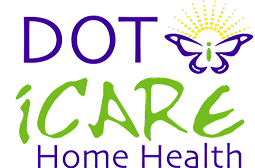How To Recognize The Early Warning Signs Of Glaucoma

Glaucoma refers to damage to the eye’s optic nerve, leading to vision loss and possible blindness. Damage to the optic nerve occurs when the valve that regulates our natural eye fluid malfunctions, resulting in increased pressure in the eye. Unfortunately, the onset of glaucoma is painless and gradual, and vision usually seems normal as the damage is occurring. As a result, glaucoma can lead to blindness, as too much irreversible damage is done before a diagnosis is made. Glaucoma is currently the second leading cause of blindness.
While the disease can affect people of any age, including children, seniors are at greater risk for glaucoma and should pay close attention to symptoms and risk factors. Glaucoma tends to be hereditary and most frequently occurs in people over the age of 60.
Glaucoma Risk Factors:
- Being over the age of 60.
- Family history of glaucoma.
- Nearsightedness (myopia).
- Having a previous eye injury.
- Low blood pressure.
- Diabetes.
- Long-term exposure to steroid medications, like cortisone or prednisone.
Warning Signs To Watch For
Even if you don’t have any of the risk factors for glaucoma, all seniors should be aware of the early warning signs and see an optometrist regularly. If you experience any of the following signs or symptoms, make an appointment with your optometrist as soon as possible.
- Loss of peripheral or side vision. This is typically the first sign of vision loss due to glaucoma.
- Seeing halos or rainbow coloured circles around lights.
- Sudden vision loss.
- Redness in the eye, accompanied by pain.
- Cloudy looking eyes.
- Nausea or vomiting as a result of severe eye pain.
- Pain in the eye and in the head.
- Narrowing of vision (tunnel vision).
The best way to prevent and minimize glaucoma is by knowing whether you or your loved ones are at an increased risk of the disease, and by vigilantly watching for warning signs. If you’re at a high risk, you should also get a complete eye exam every year so your optometrist can closely monitor your eye health and look for signs and symptoms.
Common Types Of Glaucoma In Seniors
Here are the types of glaucoma that are more commonly diagnosed among elder adults:
Open-angle glaucoma: The most common type of glaucoma, which results in a slow, painless loss of peripheral vision.
Angle-closure glaucoma: This type causes the field of vision slowly and imperceptibly narrow, causing peripheral vision to deteriorate.
Normal-tension glaucoma: A challenging type to detect as the intraocular pressure is within normal parameters. Scientists are not sure what causes of this type of glaucoma.
Living With Glaucoma
There is currently no cure for glaucoma, however, it can be controlled with medications (usually eye drops) and surgery. It is essential that glaucoma medication be taken exactly as prescribed and that the patient attends an annual follow up exam.
Often, seniors will need help with eye drops because of a tremor or fine motor control issues. They may also struggle to remember to take their medication each day. Additionally, because vision loss caused by glaucoma is permanent, affected seniors will need help physically and emotionally adjusting to their vision loss.
Support From Professional Home Health Care Services
While many seniors have support from a personal network of family and friends, it’s okay to reach out for more professional support. With the support of home health care or premier homecare services, you don’t have to face glaucoma alone—we’re here to help! iCare Home Health’s premier homecare services supports seniors in Milton, Burlington, Oakville, and Mississauga. We would be happy to conduct a free assessment and give you more information on how our services can help. Contact us today to get started.

